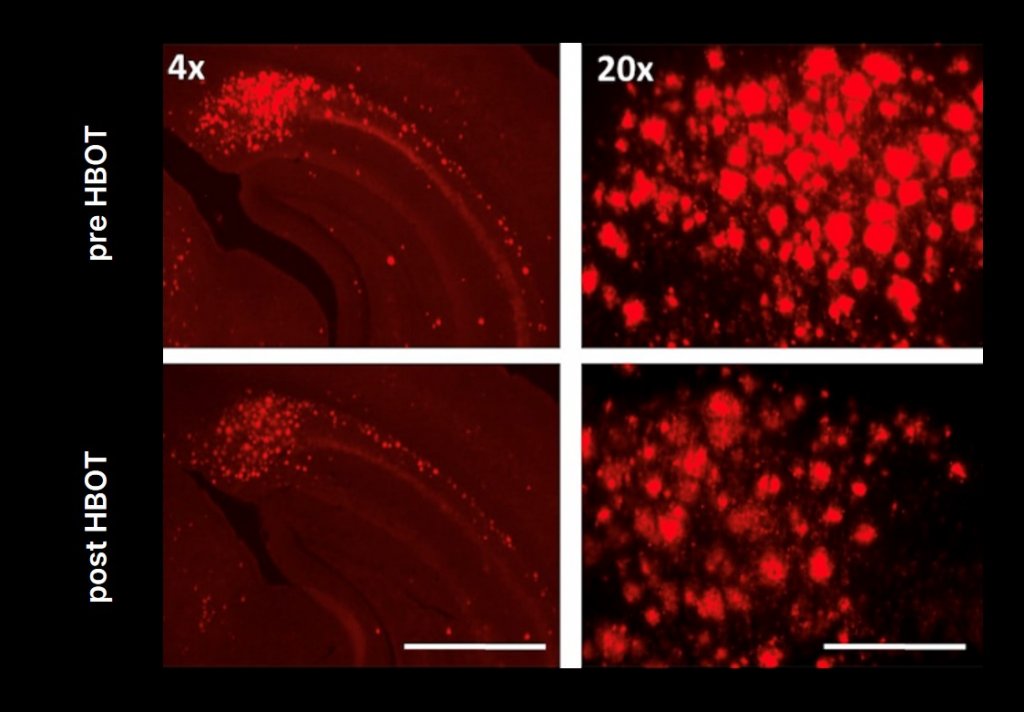Menopause Brain Fog vs. Dementia: Understanding Hormonal Impact on Memory Loss
Menopause Brain Fog vs. Dementia: Understanding Hormonal Impact on Memory Loss
We all know that menopause changes your body. But did you know that menopause can also affect brain health? Hormone changes caused by menopause can cause cognitive issues like memory loss, learning problems, and trouble concentrating. These changes may be so gradual that you might not notice them at first, or so insignificant that you don’t pay them much attention. But is the brain fog you’ve been experiencing caused by menopause, or something more serious? Let’s discuss menopause and brain health.
How Menopause Hormones Trigger Cognitive Decline & Memory Lapses
Menopause is the gradual shutdown of the female reproductive system. In the United States, the average starting age for menopause is 52. However, perimenopause (the symptomatic period) can occur much earlier, lasting anywhere from two to eight years.
Perimenopause brings a whole host of symptoms with it, including hot flashes, sleep problems, menstrual changes, and notably, cognitive difficulties. More than two-thirds of menopausal women report experiencing problems with memory, concentration, and executive function. For a long time, we only had anecdotal evidence of the cognitive difficulties that menopausal women face. But recent studies have revealed scientific evidence that “menopause brain fog” can be clinically detected.
If you’ve been having trouble concentrating on your favorite book or struggling to remember words since beginning your menopause transition, it’s not just in your head. The fluctuating hormone levels in your brain could be the cause of your minor memory loss. There’s still a lot we don’t understand about why menopause impacts the brain. But one of the key factors is thought to be the declining levels of the hormone estrogen, which plays a crucial role in the brain.
Estrogen isn’t only produced in the ovaries. The hypothalamus gland in your brain also manufactures precursor signal hormones that ultimately end up making estrogen elsewhere in your body. Estrogen is active in the prefrontal cortex and hippocampus, which are important to maintaining memory and executive function.
Having proper levels of estrogen in the brain is also vital to proper aging because estrogen imbalances are thought to play a role in the development of Alzheimer’s disease. More research on the physiological differences between male and female brains is needed to understand whether this is one of the reasons why women may be more susceptible to dementia than men.
Menopause Brain Fog vs. Dementia: Key Differences You Should Know

Fortunately, menopause-related brain fog is often mild and can disappear on its own with time, just like other unpleasant aspects of menopause, such as hot flashes. For many women, this is a huge relief. It can be incredibly cathartic to know that there’s a reason behind why you keep misplacing your phone or struggle to concentrate on your favorite book. But how do you know if your cognitive problems are actually caused by menopause?
The symptoms of menopause-related brain fog and other age-related cognitive disorders often overlap. You might have been dismissing your brief lapses in memory as just another quirk of menopause, when in reality, they could be the start of early-onset dementia or Alzheimer’s disease. Just because menopause and brain health are interrelated, this doesn’t mean that your memory lapses are menopause-related.
But how do you tell the difference?
What’s the Difference Between Menopause Brain Fog and Early Dementia?
Menopause-related brain fog often includes mild, temporary issues such as forgetfulness, difficulty concentrating, or struggling to find the right word. These symptoms usually improve over time as hormone levels stabilize.
In comparison, early signs of dementia may involve more serious or progressive concerns, such as:
-
- Repeating the same questions frequently
- Getting lost in familiar places
- Struggling with simple tasks or directions
- Forgetting common words or names
- Difficulty making decisions
- Noticeable changes in personality or behavior
If cognitive symptoms interfere with your daily life or worsen over time, it’s important to consult your physician for a full evaluation.
Women are nearly twice as likely to develop dementia as men, so it’s vital to stay vigilant for the warning signs of dementia early on. When in doubt, it’s always best to raise your concerns with your doctor rather than dismiss them as nothing. However, even if you don’t have dementia or Alzheimer’s disease, there are times when menopause-related cognitive decline can linger rather than naturally fade.
Estrogen, Menopause and Brain Health: Scientific Connections
In a study published in the Journal of the Menopause Society, researchers discovered that the advancement of menopause was a “key determinant of cognition” among both pre- and post-menopausal women. The women included in the study were primarily low-income women of color, some of whom also had HIV. The study followed the women for several years, from pre-menopause through post-menopause. Every two years, the women underwent testing to assess their cognitive abilities, including memory, verbal learning, attention span, processing speed, motor skills, executive function, and more.
Even after adjusting for age and other factors, the overall odds for a decline in cognitive function still increased throughout menopause. Many of those in the test group had even reached a “clinically significant level of cognitive impairment” by the end of the study. Although HIV might have had a role to play in the severity of the decline, cognitive problems also persisted in women who didn’t have HIV.
Science still hasn’t determined exactly why menopause-related cognitive problems naturally fade in some women and linger in others. Fortunately, there are ways to help yourself through these cognitive issues.
Effective Lifestyle Strategies to Alleviate Menopause-Related Brain Fog
In general, living a healthy lifestyle can help you balance your hormones during menopause and alleviate cognitive symptoms. This includes a healthy diet, exercise, and keeping your mind active.

Nutrition. Eat foods that promote brain health, such as whole fruits, vegetables, lean meat, and nuts.
- Fish are full of omega-3s, which can boost brain power.
- Leafy greens such as kale, spinach, and collards are rich in brain-healthy nutrients like folate and vitamin E.
- Take care to avoid eating sugar and processed foods, which can not only increase brain fog but also worsen other menopausal symptoms, like hot flashes and sleep disruptions.
- Eating dairy products rich in calcium can also help offset your risk of developing osteoporosis, which increases during menopause.
Exercise. Regular exercise increases blood flow to the brain, and an oxygenated brain is a healthy brain. Even a brisk walk down the block with your partner or pet can help you lift your mental fog. Exercise can also help ward off menopause-related weight gain, if you’re concerned about that.
Meditation. Of course, you can also exercise your brain directly. Mindfulness activities like meditation can increase your focus and help you concentrate on your important tasks more easily. You can even combine mindfulness with physical activities like yoga to get the best of both worlds!
The Bottom Line: Supportive Solutions for Menopause-Related Cognitive Decline
While menopause can leave you feeling foggy or out of sorts, you can take steps to alleviate your symptoms by living a healthy lifestyle. Keep an eye out for any cognitive problems that negatively impact your life, and contact your doctor if you feel that something is out of place. Whether you or someone you love is going through this transitional period in life, remember to always be kind, patient, and understanding.
Restore Cognitive Clarity with the Aviv Medical Program
At Aviv Clinics, we understand the frustration that comes with cognitive changes. The personalized Aviv Medical Program addresses cognitive decline at its source — whether it stems from aging, illness, or other health factors. Using a unique, evidence-based hyperbaric oxygen therapy (HBOT) protocol, advanced brain imaging, and complementary therapies like nutritional counseling, physical activity, and cognitive exercises, we help clients restore clarity, memory, and focus.
If you’re concerned that menopause — or another cause — is affecting your brain health more than it should, we’re here to help you get to the root of the issue and create a plan for optimal long-term brain performance.
To learn more about the personalized health program available at Aviv Clinics and discover how we can help, contact the clinic.
Last Update: July 7, 2025
Study Shows Hyperbaric Oxygen Therapy (HBOT) May Reverse Early Alzheimer’s Symptoms and Amyloid Plaques
Can science reverse Alzheimer’s disease? A groundbreaking study has brought scientists one step closer to preventing and curing age-related cognitive decline, especially related to the early stages of Alzheimer’s disease and dementia.
This landmark study, published in Aging on September 9, is part of an ongoing program researching age-related cognitive decline. Conducted by the Sagol School of Neuroscience and Tel Aviv University, the study marks the first time that hyperbaric oxygen therapy (HBOT) — a noninvasive and non-pharmaceutical method — has proven effective in reversing the main activators and early symptoms of Alzheimer’s disease.
HBOT is a form of oxygen therapy that involves administering 100% pure oxygen to a patient in a pressurized environment. It has been used for more than half a century to treat conditions such as non-healing wounds and decompression sickness. The study used a specific protocol of hyperbaric oxygen therapy designed to initiate the hyperoxic-hypoxic paradox in cells.
A treatment based on this unique protocol is now available at Aviv Clinics Florida.
How Aging and Blood Flow Contribute to Alzheimer’s Risk
The brain is an incredibly complex organ, home to a vast network of nerve cells (neurons) that rely on oxygen to thrive. As we age, the number of efficient and effective blood vessels in our brain naturally begins to decline. This causes reduced blood flow to the brain, which in turn causes the brain to receive less oxygen. This decreased blood flow is called vascular dysfunction, and it’s a known precursor to Alzheimer’s disease, along with amyloid plaques.
Amyloid Plaques and Their Role in Alzheimer’s Disease
Amyloid plaques are hard, insoluble clusters of proteins formed in the spaces between the neurons in your brain. A healthy brain usually flushes them out without consequence. However, just like plaque can accumulate on your teeth if you don’t clean them regularly, the same thing can happen in your brain.
As the brain ages, it’s more susceptible to forming amyloid plaques in its blood vessel walls. Once an amyloid plaque forms, it can damage the neurons in the brain. These plaques are thought to contribute to the progression of Alzheimer’s disease and the cognitive decline associated with it.
For years, scientists have wondered whether or not it’s even possible to dissolve or shrink amyloid plaques. The groundbreaking new study proves for the first time that a unique protocol of HBOT can reverse amyloid plaques and prevent them from forming in the first place.
Are You At Risk of Developing Alzheimer’s Disease?
Learn how a simple blood test available at Aviv Clinics may be able to answer this question: pTau Testing
Reverse Alzheimer’s? Study Shows HBOT Protocol May Reduce Amyloid Plaques and Boost Cognition
Researchers initially treated laboratory mice with hyperbaric oxygen therapy to understand its effect on amyloid plaques. In this first part of the study, researchers delivered HBOT to a group of mice whose brains contained amyloid plaques. The mice received two 60-minute HBOT sessions a day, five days a week, for four weeks. The researchers discovered that HBOT significantly reduced the amyloid burden in the mice’s brains, decreasing amyloid plaques by over 30% and shrinking plaques by nearly 19%.

HBOT was also shown to prevent the formation of new amyloid plaques, and the mice exhibited improved performance on cognitive tasks when compared to the control group, providing evidence that HBOT improved their cognitive functions.
The rodent study gave promising new evidence that HBOT can be used as both a treatment and a preventative measure for Alzheimer’s disease. Researchers then sought to use the same protocol with human subjects.
The human test group consisted of six patients around age 70, all suffering from mild cognitive impairment. After receiving 60 daily HBOT sessions over three months, patients saw significant improvements in their cognitive functions. Improvements included better memory recall, concentration, and response times.
The researchers hypothesize that this is due to HBOT’s ability to increase blood flow in the brain. When the brain receives more blood, it receives more oxygen. And when the brain receives more oxygen, it can function at a higher capacity.
The Future of Alzheimer’s Treatment: Hope Through HBOT
The study offers hope that HBOT can one day be a viable drug-free method to prevent, treat, and even potentially reverse Alzheimer’s disease.
“By treating vascular dysfunction, we’re mapping out the path toward Alzheimer’s prevention. More research is underway to further demonstrate how HBOT can improve cognitive function and become an influential tool in the imperative fight against the disease,” affirms Dr. Shai Efrati, one of the investigators conducting the study.
Access the Only U.S. Clinic Offering this Alzheimer’s HBOT Protocol
Dr. Efrati is chair of the Aviv Medical Advisory Board. Aviv Clinics in central Florida is the largest and most advanced civilian HBOT clinic in the United States, and the only one that offers the study’s specific HBOT protocol as part of the Aviv Medical Program. This personalized treatment program uses comprehensive testing and assessments to help craft a treatment plan for each client. As part of the program, HBOT can be supported by other evidence-based therapies, including nutrition counseling, cognitive exercises, and physical training to optimize client outcomes.
For more information about the Aviv Medical Program, HBOT treatment, and how it may help your brain health, please contact us.
To read the study published in Journal Aging – click here.
Last Update: July 3, 2025